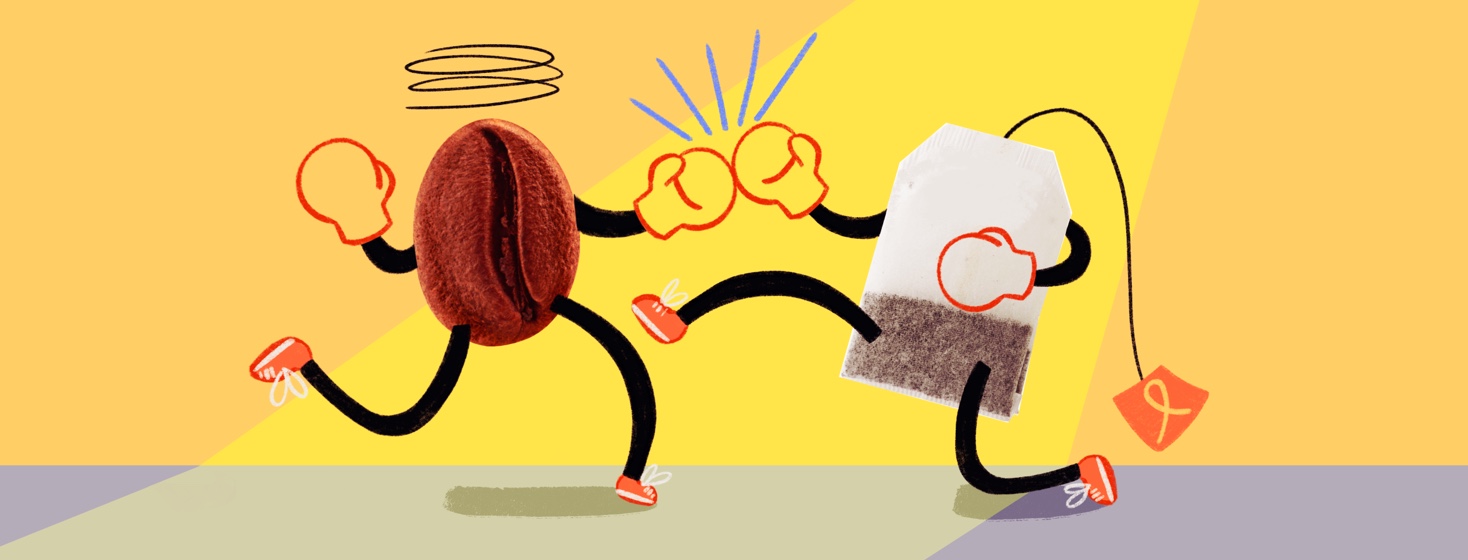Bridging the Beverage Divide in My Marriage
One of the biggest cultural divides is between the coffee-drinking world and the tea-consuming world. For decades, that divide existed in my marriage; I was the coffee gal, and my husband, Gary, was the tea guy. Luckily, this division among people is friendly, just as some people prefer cats and others prefer dogs.
I always enjoyed coffee because of its bold flavor and the added benefit of making me feel a bit more energetic and alert. And that wonderful smell in the morning!
Coffee has benefits and risks
Gary has always touted the taste and the many varieties of tea. He is a health nut and has insisted that tea is nutritious and also has a calming effect. I countered that experts were touting some of the health benefits of drinking coffee.
“Yes, cream and sugar are staples in a healthy diet,” he said derisively. “Not to mention that too much caffeine can make people jittery.”
“Well, I need my coffee,” I insisted. “It makes me feel good.”
Drinking tea with MS and IBS
I thought there was no way my husband was going to convert me to tea, but I had to reluctantly admit I was wrong. After developing irritable bowel syndrome (IBS), my coffee days were over. I learned that IBS and other digestive conditions are common in MS patients, and for some people, coffee may exacerbate them.
My husband weaned me onto all types of tea: black tea, green tea, white tea, and oolong. I enjoyed all of them and I finally understood his passion for the beverage. However, I can’t say that I love tea the way that he does. It’s a nice drink that doesn’t really do anything for me.
I love peppermint tea!
So, I would join Gary and our son, who also loves tea, for a nice cup after dinner each night. That changed when I discovered peppermint tea. Gary is not a huge fan, insisting that herbal teas are not true teas.
Traditional teas come from the Camellia sinensis plant, a small evergreen shrub that is native to Asia. The leaves are cut differently and cured in the sun for different lengths of time to acquire their unique characteristics. As with wine, the soil and the climate also play a role in the quality and taste of tea.1
Herbal teas come from infusions of dried fruits, flowers, spices, or herbs in water. Peppermint, spearmint, hibiscus, ginger, and chamomile are popular herbal teas. My favorite herbal tea is peppermint because it soothes the tummy. Peppermint aids digestion and is a safe and effective therapy for IBS.1-2
Where to find quality teas
Gary and I suggest buying mainly loose organic tea leaves because the quality is usually higher than the tea found in bags. If you do use tea bags, we suggest using brands that have no plastic in the bags. Our preferred sources for high-quality, affordable organic teas are Simpson & Vail and Arbor Teas, though we also drink regular peppermint tea in bags from Twinings. A good source of tea reviews is ratetea.com.
As for whether herbal tea is tea, I found some authorities stating that a herbal infusion is technically known as a tisane, but is commonly called tea. My husband had to reluctantly admit he was wrong.
To your health!

Join the conversation